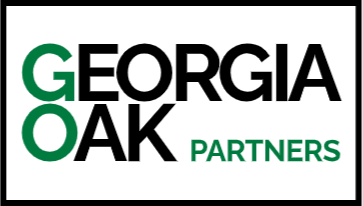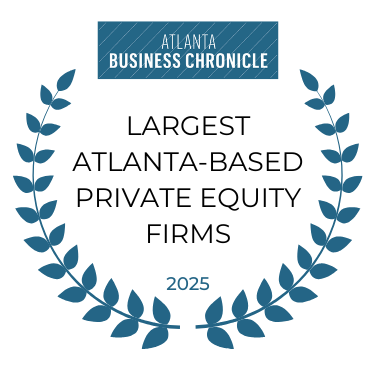Insights
NEWS FEATURES BY DATE
List of Services
-
2/4/2026 Artisan Custom Closets Acquires Queen City Closets, Expanding Presence into the Charlotte Market2/4/2026
-
11/2/2025 Connor Smith Joins Georgia Oak11/2/2025
-
10/31/2025 Septic Blue Acquires Advanced Septic10/31/2025
-
10/31/2025 Georgia Oak Invests in Atlanta Gear Works10/31/2025
-
9/10/2025 Septic Blue Acquires A-1 Septic Services9/10/2025
-
8/14/2025 T Management Acquires Life Point Dental Group8/14/2025
-
3/31/2025 Artisan Custom Closets Acquires Carolina Closets Plus3/31/2025
-
10/25/2024 Georgia Oak Invests in T Management10/25/2024
-
10/14/2024 Georgia Oak Promotes Corey Clemons to Vice President10/14/2024
-
5/30/2024 Growth Expert Jeff Tankersley Joins Septic Blue as CEO5/30/2024
-
4/22/2024 Artisan Custom Closets Expands Reach with Acquisition of Chattanooga Closet Company4/22/2024
-
1/11/2024 Georgia Oak Sponsors M&A South1/11/2024
-
11/29/2023 David Walker Joins Georgia Oak11/29/2023
-
11/15/2023 Georgia Oak Partners Announces Strategic Acquisition of Septic Blue11/15/2023
-
10/4/2023 Aditi Further Expands its Technology Solution Services by Acquiring Resolvit10/4/2023
-
9/21/2023 Atlanta Braves legend Dale Murphy joins Georgia Oak Partners as Managing Director9/21/2023
-
7/11/2023 Corey Clemons Joins Georgia Oak7/11/2023
-
6/5/2023 Artisan Custom Closets Acquires Spacemakers and Carolina Closets6/5/2023
-
5/22/2023 Home Improvement Expert Lindsay Tillie Joins Artisan Custom Closets as CEO5/22/2023
-
1/30/2023 Stacy Sutton Joins Georgia Oak1/30/2023
-
12/22/2022 Georgia Oak Partners Invests in Artisan Custom Closets12/22/2022
-
12/6/2022 Georgia Oak Partners Adds Emerald Transportation Solutions to its Portfolio12/6/2022
-
1/6/2022 Lars Heck Joins Georgia Oak Partners1/6/2022
-
3/18/2021 GA Governor Kemp Announces Sailfish Expansion3/18/2021
-
3/16/2021 Georgia Oak Partners Invests in Aditi Consulting3/16/2021
-
12/22/2020 Georgia Oak Partners: Our History, Your Future12/22/2020
-
2/19/2019 Forbes Features Farm Burger Invasive Species Sandwich Launch2/19/2019
-
12/11/2018 Former Back Yard Burgers CEO Joins Your Pie as COO12/11/2018
-
10/11/2018 Spectrum Staffing Named Finalist for Pinnacle Small Business Awards10/11/2018
-
9/19/2018 Farm Burger Honored on Good Good 100 Restaurants™ List9/19/2018
-
9/18/2018 Georgia Oak Partners Founder Named to 2018 40 Under Forty by Atlanta Business Chronicle9/18/2018
-
8/19/2018 Georgia Oak Partners Founder Named to 2018 40 Under Forty by Atlanta Business Chronicle8/19/2018
-
7/25/2018 Your Pie Celebrates 10 Years with Franchise Fest, Contest7/25/2018
-
7/13/2018 Your Pie Named to Restaurant Business "Future 50" List7/13/2018
-
6/29/2018 Georgia Oak Partners Founder Named to 2018 Emerging Leaders by The M&A Advisor6/29/2018
-
5/16/2018 Farm Burger Named a "Sizzling Better-Burger Concept to Watch" by QSR Magazine5/16/2018
-
4/17/2018 QSR Magazine: Your Pie Opens 5 Locations in First Quarter4/17/2018
-
3/30/2018 Spectrum Staffing Wins Movers & Makers MVP Award3/30/2018
-
2/12/2018 Farm Burger Named to QSR Magazine's 40 Under 40 Units List2/12/2018
Build Successful Teams with These 5 Elements
By Tricia Forbes
THE HUMAN ELEMENT: SUCCESSFUL TEAMS DO THESE 5 THINGS WELL
We've spent a lot of time and effort curating conditions under which teams can thrive, both for our Georgia Oak team and with our partner companies. The successful functioning of teams is essential to making our investments work, and learning to work together as team takes concentrated focus. But even smart people with the best intentions sometimes struggle to get a team firing on all cylinders. We've found the best teams have the following things in common:
1. Transparency
Nothing will halt progress faster than the hoarding of information. Effective teams challenge the status quo about information-sharing. The obvious/important exception here is private HR matters. Beyond that, we've found that teams who widely share information tend to innovate more and have increased productivity. Team members feel more ownership over the process and work product. How can you expect an employee to "think like an owner" if they have only a fraction of the information needed to do so?
Takeaway: Share as much data as you can, practically and legally speaking.
2. Permission to Fail Forward
Thomas Edison is widely known for his successful inventions. The man filed 1,093 patents! But he also famously said, "I have not failed. I've just found 10,000 ways that won't work." In short, Edison seemed to believe that each misstep was a step closer to a solution. People play it safe when they believe their livelihoods are on the line if they make a wrong move. As long as earnest effort is applied to each task, failure in the innovation process should actually be celebrated. Failure is not the end. It is the middle. There are no bad ideas on a good team. Once successful processes are established, they should be respected, but always leaving room for iteration and new ways of thinking.
Takeaway: Encourage teams to innovate by acknowledging that failures along the way are a guaranteed part of the process, and they won't be punished for trying new things.
3. Vulnerability
When people are worried about being judged or shamed, they protect themselves by keeping things close to the vest. When employees struggle in silence because they fear opening up, opportunities are missed for creating stronger connections and a sense of community at work. People need to know (and be ever reminded) that they can be their true selves at work. When people mock or criticize those who are being vulnerable, they should be privately coached. If they can't grow into a team player who holds space for other people's ways of being, they should be removed from the team.
Takeaway: Embrace the fact that each team member is a human being and has an emotional and thought life as deep and complicated as your own. We all come to work in different mental places and should seek to support one another.
4. Humble Leaders
Have you ever seen the head football coach score a touchdown? Me neither. We all know the coach has an out-sized effect on the team's ability to win a game, but they can't do it without the players. The best teams have leaders who refuse to take credit for the work that only a team can accomplish. Institutionalize praise for your team members. If you've historically had trouble with this, add an entry on your calendar for recognizing their efforts.
Takeaway: Acknowledge each person's contributions to a team win, big or small, and do it consistently.
5. Glass Half Full Mentality
Stick with me here... This is not a "power of positive thinking", "woo-woo" thing, but rather a simple focus on gratitude. When leaders and team members make a conscious effort to show gratitude to one another, teams are more productive and effective. Additionally, approaching each situation with the assumption that people are doing their best (rather than being lazy, trying to sabotage, etc.) often inspires them to actually do their best. Of course, be realistic if you have real issues with someone not carrying their weight, but otherwise, say "thank you" more often than you think is humanly possible. People will notice.
Takeaway: Regularly express gratitude to your teams and encourage them to do the same among their peers.
At Georgia Oak, we’re committed to enhancing your business and helping founders grow their legacies
to their fullest potential. If you find we’re a good fit for your next step, please reach out to us.




